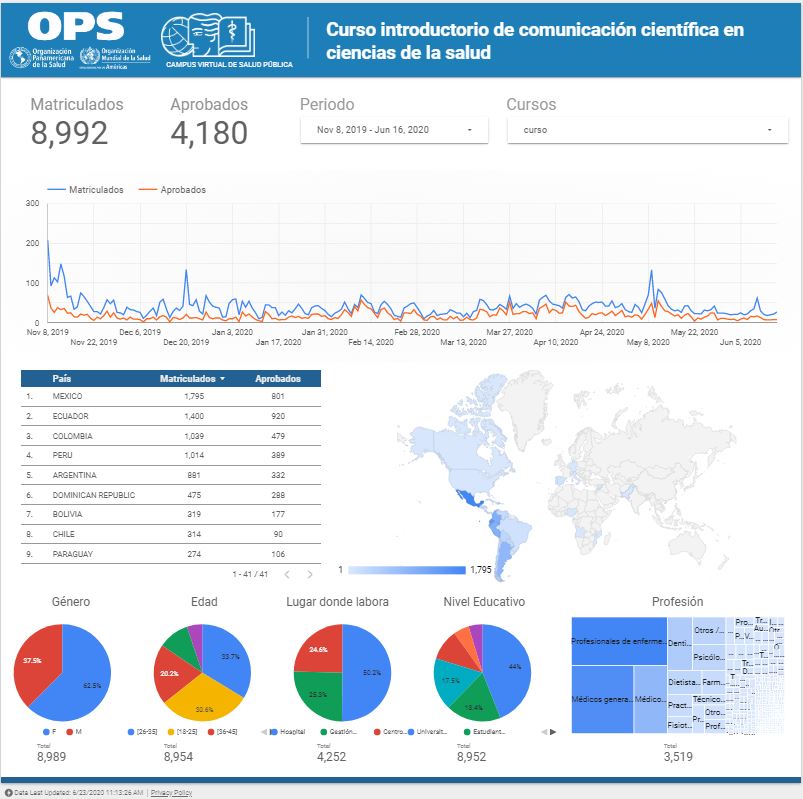The Pan American Health Organization/World Health Organization (PAHO/WHO), through its Latin American and Caribbean Center on Health Sciences Information (BIREME) and the then Office of Knowledge Management, Publications and Translations (KMP) launched a Self-Learning Course on Scholarly Communication in Health Sciences in November 2019.
The course, completely online and free, is hosted on the PAHO WHO Virtual Campus for Public Health (VCPH) platform, and aims at promoting the publication of scientific research results in the countries of the region and improve the quality of reports through training participants in the main concepts of scholarly communication, including the correct writing of scientific and technical reports and articles for publication in scientific journals.
The training is aimed at health professionals and technicians, researchers, scientific editors, information science professionals, postgraduate students in health areas and other interested parties. The self-learning model used in its design allows participants to learn at their own pace by reviewing concepts and themes, supported by complementary reading material and exercises included in each of the six classes that make up the course.
The VCPH platform is open access and, in addition to this course, it includes many other educational resources in languages such as Spanish, Portuguese, English and French. Currently, the scientific communication course is available in Spanish, but its translation into Portuguese is at an advanced stage and should be launched by the end of 2020.
The course has prompted great interest; since its launch, more than 9,000 people have signed up and over 4,000 people have completed training (Fig. 1). Mexico leads the ranking in number of participants, followed by Ecuador, Colombia, Peru, Argentina and the Dominican Republic. The profile of the participants shows that 44% have a university degree, and 23% have a master’s or doctorate. Most are young (66% are between 18 and 35 years old), 63% are female, half work in hospitals and 25% in other health services. Among the professionals who took the course, nurses are in first place, followed by general practitioners and specialist doctors, but there are representatives from other health professions.

According to the satisfaction questionnaire answered by all those who completed the course (4,174 people on 06/16/2020), 97.6% consider that the topics covered were relevant to their professional development; 95.1% are of the opinion that the audiovisual resources, tasks and exercises used in the course were useful for learning. Among the greatest advantages of the course were access to various sources of information, and autonomy and freedom of hours.
Among the difficulties pointed out, questions of technical nature predominate – such as the impossibility of moving quickly in search of a certain point in the video, and difficulties in following the course on tablets and cell phones.
In general, the evaluation by the participants was positive, suggesting that new courses are held to deepen the themes presented, in addition to suggestions to increase the number of exercises and scientific writing practices. Some users even suggest that the course be more publicized in medical circles, such as social networks of associations of medical and nursing students, for example.
Health decisions must be based on the best available scientific evidence; in this context, this course seeks to support scientific publication in the countries of the Region, which will result in better health conditions for their populations.